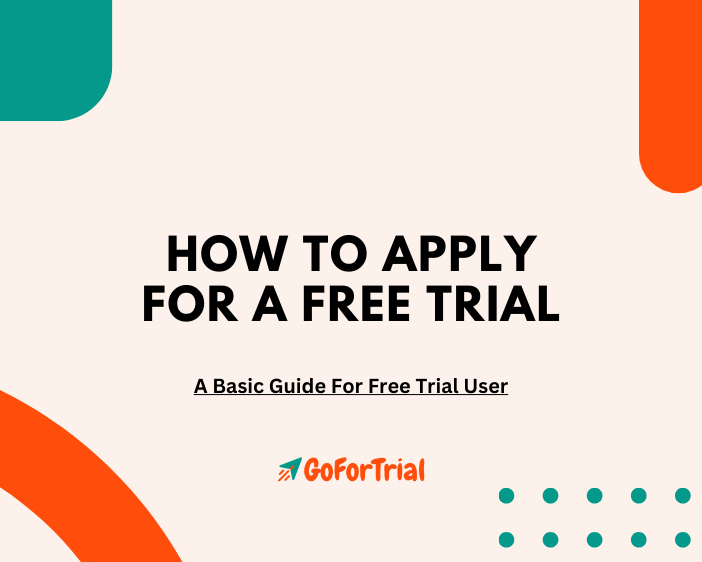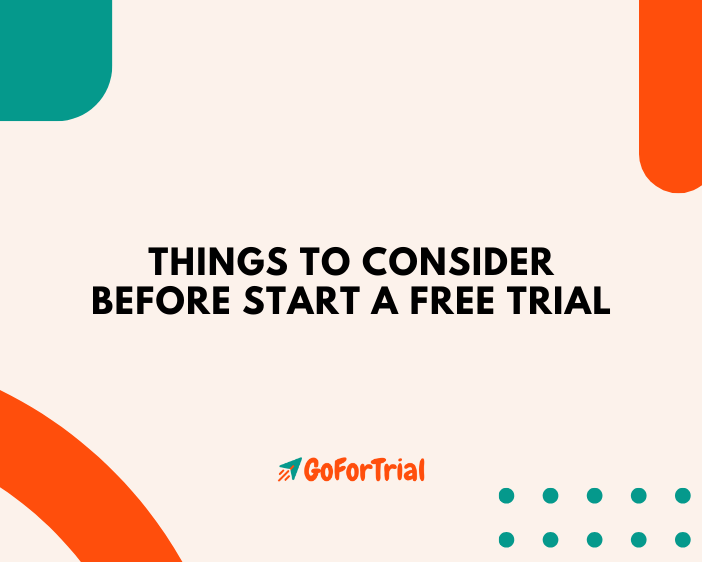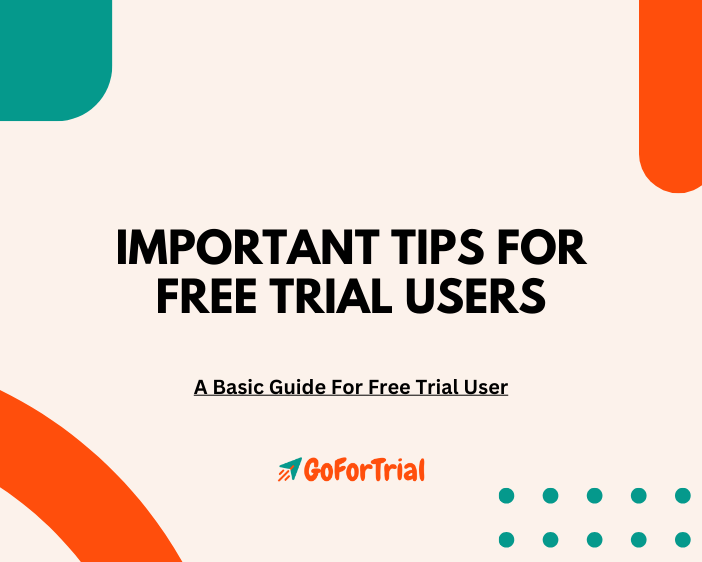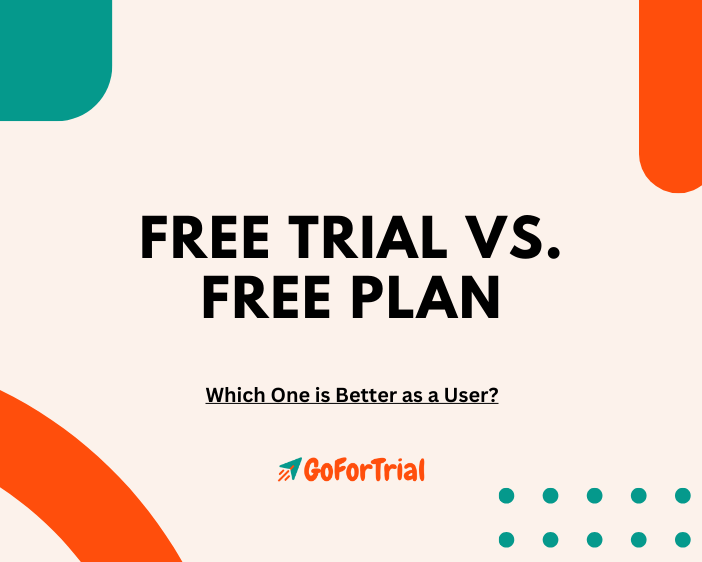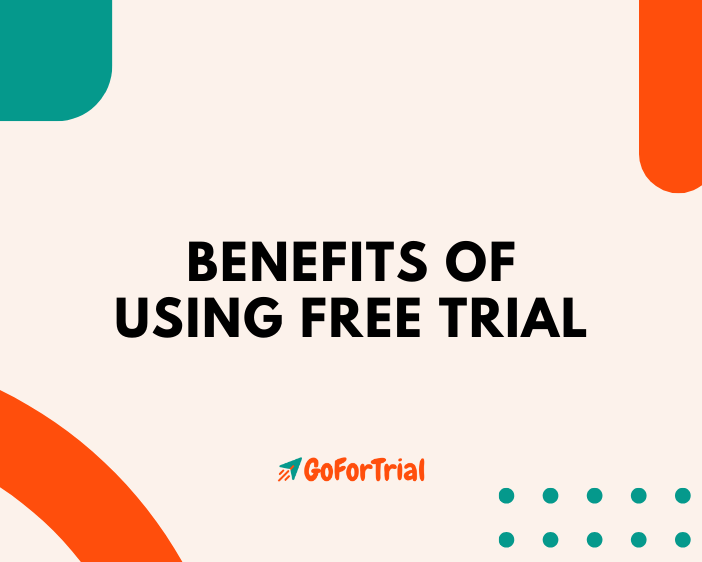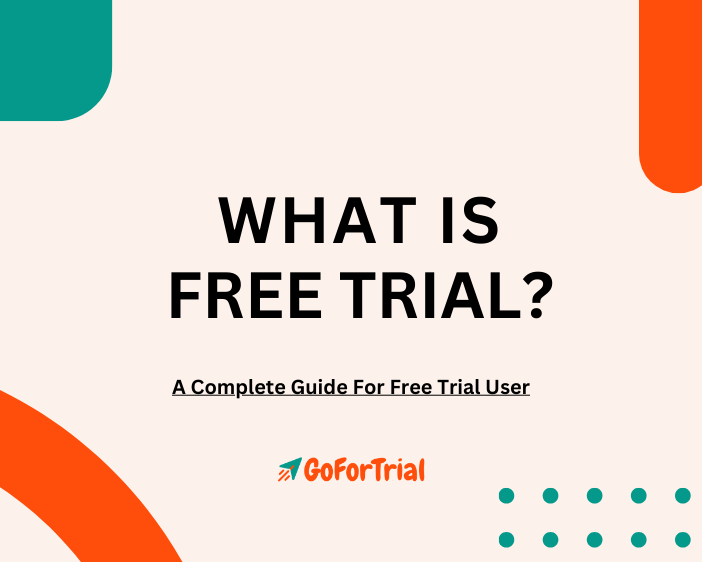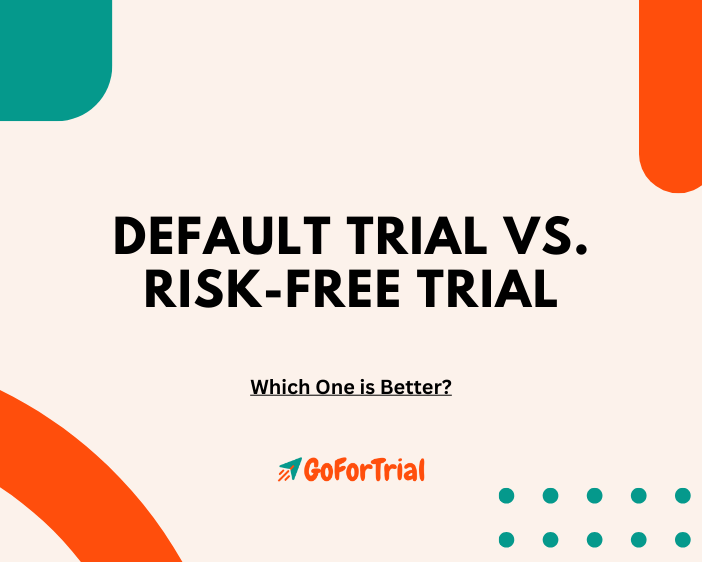
In today’s digital landscape, free trials have become a ubiquitous marketing strategy employed by businesses to attract potential customers.
A free trial offers users the opportunity to experience a product or service without committing financially upfront. This article delves into the advantages and drawbacks of free trials from a user’s standpoint.
Pros of Free Trials
Test Before You Invest:
Free trials offer users the chance to get hands-on experience with a product or service before making a financial commitment.
This hands-on experience can provide valuable insights into whether the product aligns with their expectations and requirements. Users can explore the user interface, features, and functionalities to assess how intuitive and useful the product is for their needs.
Cost-effectiveness
Free trials provide users with access to premium features without requiring an initial monetary investment. This makes them an attractive option for individuals looking to test multiple offerings without incurring substantial expenses.
Users can leverage free trials to assess the value proposition of different products or services before deciding which ones warrant further investment.
Risk-Free Experience:
The risk-free nature of free trials appeals to users who may be cautious about spending money on unfamiliar products. By eliminating the financial barrier, free trials encourage users to explore new offerings without fear of wasting their hard-earned money on something that doesn’t meet their needs.
This encourages experimentation and allows users to discover new products they might not have tried otherwise.
Time to Evaluate:
The duration of a free trial allows users to thoroughly evaluate the product over an extended period. This extended evaluation period is particularly beneficial for products or services that require time to learn or integrate into existing workflows.
Users can take their time to explore all aspects of the product, from basic features to more advanced functionalities, to ensure it meets their requirements before making a purchasing decision.
Access to Premium Features:
Some free trials offer access to premium features or content that are typically reserved for paid subscribers. This allows users to experience the full potential of the product and understand the value it can provide.
By showcasing these premium features during the trial period, companies can demonstrate the benefits of upgrading to a paid subscription, thereby enticing users to convert into paying customers.
No Strings Attached:
Unlike traditional purchases, free trials do not require users to provide payment information upfront. This removes the barrier to entry and reduces friction in the signup process, making it easier for users to take advantage of the trial offer.
Additionally, since no payment information is required, users can feel confident that they won’t be charged unless they actively choose to subscribe after the trial period ends.
Cons of Free Trials
Limited duration
One of the primary drawbacks of free trials is their limited duration. While the trial period provides users with a glimpse into the product’s capabilities, it may not be sufficient for users to fully evaluate its long-term suitability.
As a result, users may feel rushed or pressured to decide before they’ve had an opportunity to thoroughly assess the product, leading to uncertainty and dissatisfaction.
Potential for overspending
While free trials eliminate the upfront cost barrier, they can sometimes result in unexpected charges post-trial expiration. Users may forget to cancel their subscriptions or overlook terms and conditions regarding automatic renewal.
Consequently, individuals may find themselves incurring charges for services they no longer wish to use, leading to financial repercussions.
Potential for Overlooking Terms and Conditions
In their eagerness to take advantage of a free trial, users may overlook or skim through the terms and conditions associated with the offer.
This can lead to misunderstandings regarding cancellation policies, automatic renewal clauses, or usage restrictions. Failure to adhere to these terms and conditions can result in unexpected charges or penalties, leading to frustration and distrust among users.
Incomplete User Experience:
Some free trials offer only a limited version of the product with restricted features or functionalities. While this allows users to explore the basic capabilities of the product, it may not provide a comprehensive understanding of its full potential.
Users may be left wondering whether the paid version of the product offers additional features or improvements that would justify the investment, leading to uncertainty and indecision.
Risk of Forgetting to Cancel:
Life can be hectic, and it’s easy for users to forget to cancel a free trial before it transitions into a paid subscription. This forgetfulness can result in unintended charges and frustration for users who did not intend to continue using the product beyond the trial period.
Even users who fully intend to cancel may find it challenging to navigate the cancellation process, especially if it requires contacting customer support or navigating through complex account settings.
Potential for Data Privacy Concerns:
Some free trials require users to provide personal information, such as email addresses or payment details, to sign up. While this information may be necessary for account creation and communication purposes, users may be hesitant to share sensitive data with unfamiliar companies.
Concerns about data privacy and security can deter users from taking advantage of free trial offers, particularly if they’re unsure about how their information will be used or protected.
Conclusion
Free trials offer users a valuable opportunity to explore products and services before making a financial commitment. While they provide numerous benefits, such as accessibility and cost-effectiveness, users must navigate challenges such as time constraints and potential overspending.
By evaluating the pros and cons from a user’s perspective, individuals can make informed decisions about whether to subscribe based on their unique needs and circumstances.
More Details & Guide about Free Trial
FAQs
What are the benefits of signing up for a free trial?
Free trials offer several benefits, including the opportunity to test out a product risk-free, access premium features, and evaluate the product’s suitability before making a purchase. They also provide users with a chance to explore different products and services without committing financially.
Are there any downsides to free trials?
While free trials can be beneficial, they also come with potential drawbacks. These may include limited duration, the risk of overlooking terms and conditions, incomplete user experiences, the possibility of forgetting to cancel before the trial ends, and concerns about data privacy.
What should users consider before signing up for a free trial?
Before signing up for a free trial, users should consider factors such as their specific needs and requirements, the reputation of the company offering the trial, the availability of customer support, and any potential costs or commitments associated with the trial or subsequent subscription.
Are there any alternatives to free trials for trying out products or services?
Yes, there are alternatives to free trials, such as demo versions, limited-time promotions, money-back guarantees, and freemium models. Each of these options offers different benefits and drawbacks, so it’s essential to consider your preferences and needs when exploring alternatives to free trials.
How can users protect their privacy and security when signing up for free trials?
To protect their privacy and security when signing up for free trials, users should only provide necessary personal information, use strong and unique passwords, avoid sharing sensitive data over unsecured networks, and review the company’s privacy policy to understand how their information will be used and protected.



